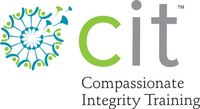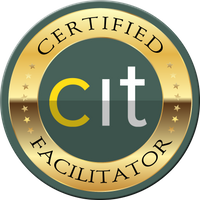WELCOME TO PELZER-KONFLIKTPRÄVENTION
ABOUT ME
I am a Certified Professional of Positive Psychology (2018), Systemic Coach for Positive Psychology (2022), certified Facilitator for Compassionate Integrity Training (CIT) (2018), certified mediator (2004) as well as a licensed attorney (2000). In addition to the state law exams (1995,98), I have a Master of Science in Positive Psychology (2018) and a Master in Humanitarian Assistance (1996). For many years I worked in research management for a large non-university research organization. I have also gained experience in human rights and development policy abroad (UN; Zimbabwe; India; USA).
How can I support you?
Are you looking for change in your private or professional life? You need short-term support for a difficult decision? You need conflict mediation? You want to solve an inner conflict? You need mediation, coaching or consulting and are not looking for therapy?
I will be happy to support you.
You think something has to change fundamentally in our society and wonder where to start? I would be happy to introduce you to a great training program (CIT) that inspires personal and special growth and will inspire you to carry what you have gained into our society, which we can thus shape for the better.
Would you like to achieve more self-acceptance and self-compassion? CIT might be of interest to you.
I will be happy to support you to reach your own personal aha-moments.
What am I offering?
Seeing and inspiring potential is my passion, as is a commitment to change. For me, it is crucial that we start with ourselves when it comes to change.
We experience on different levels every day how necessary it is for us to change something. Personal growth challenges us just as much as getting along well with others. So many of our conflicts could be solved by being more in balance with ourselves, by being more understanding of the concerns of others, by better listening and looking without the distorted view of projection. I am convinced that we strengthen ourselves by strengthening others as well. To grow, we depend on cooperation and rethinking.
Systemic Coaching
They exist for all of us: thinking traps, challenges, dilemmas that hinder us to flourish. I am happy to support you in sorting and organizing your thoughts, your options and your goals.
I offer individual coaching in German and English. I coach systemically in connection with methods and insights of Positive Psychology.
A systemic approach to coaching implies that we look at both you and your topic holistically, considering the relevant contexts and relationships in which you are living. This opens up a new scope for solutions for you. Systemic coaching has a sustainable impact, because relevant contexts and people are included who will be part of the change.
From a systemic point of view, you yourself can also be a system with many (inner) parts, whose individual illumination can lead to finding solutions.
For me, coaching means that you are in the driver's seat and we explore the possible paths together.
Consulting vs. Coaching
Coaching is a great tool to get results that are feasible and sustainable. Coaching elicits many possible solutions from you and you decide exactly where to go. And if advice and external expertise is needed after all, we'll see which format is right for you and your topic.
Mediation
Mediation is a means of dispute resolution in private and professional conflicts, offering extrajudicial, autonomous resolution of conflicts. Conflicts absorb a lot of energy and can block us emotionally as well as mentally.
Through the mediation of an impartial third party, the mediator, these conflicts are resolved amicably. Mediation is voluntary, clear and solution-oriented. In contrast to legal proceedings, the solution is not handed over. You remain the expert of the conflict.
You determine the topics. I support you in finding, hearing and understanding each other's positions. This opens up perspectives for finding a fair and sustainable solution that takes your respective needs into account. Finding the solution then creates the foundation for moving forward and growing personally and also interpersonally.
In a free initial consultation, we first clarify whether mediation is advisable in your case or whether other approaches are more appropriate. We clarify the topic of the mediation and you define together what is important to you as conflict parties. If necessary, we also take time for this at the second meeting. Already in the clarification of the conflict topic there may be disagreement. We define the rules of communication and behavior that you need in order to talk to each other constructively. In a further step, you explain your positions, your perspectives, your interests and wishes. For this, we take as much space and time as necessary, in order to then collect and illuminate options and solution approaches together. In this way, with my support, you work out an autonomous and sustainable solution that all parties to the conflict can live with. We record this solution and the concrete implementation steps in an amicable agreement in order to prevent misunderstandings and to support you in the implementation.
It is crucial that you seek mediation and that you come to me voluntarily. As a mediator, I support all parties equally and ensure that the process is fair. In doing so, approaches of Positive Psychology, especially the strength- and growth-oriented, shape my mediation competence. As a mediator I am not allowed to give legal advice.
Experience shows that between three and ten meetings are necessary to reach a result. Mediation therefore saves costs and time.
I offer mediation for the following areas
- School and education
- Family and partnership
- Neighborhood disputes
- (non-profit) organizations
- Public Authorities
- Associations
- (non-profit) Organisations
I gladly share more in a free initial consultation.
Please contact me at mail[at]pelzer-konfliktpraevention.de
CIT - Compassionate Integrity Training
I am convinced that acting in accordance with our own values and with compassion is a win-win situation. I believe, exploring our own bias, being able to understand other people's reality, cultivating tolerance and respect for those who think differently to be essential. Tolerance and open-mindedness is cultivated through compassion which requires to be able to empathize with other people in a resilient way without losing one's own needs out of sight. This yet again is cultivated by Compassionate Integrity Training (CIT).
Compassionate Integrity Training (CIT) is a multi-part resiliency-orientated and strength-based training programme, developed by the Center for Compassion and Secular Ethics of Life University. It focuses on and builds toward compassionate integrity: the ability to live one’s life in accordance with one’s values, acknowledging our broad denominator: our common humanity.
Engaging with complex systems requires the critical insights of selves, others and the interconnected systems. It requires self-care as much as knowing oneself as interacting with integrity and acting ethically with discernment. By deepening understanding and the cultivation of compassion and impartiality, the course aims to support participants to be the change they wish to see in the world.
The good news is, we are wired to act compassionate and kind. There is more good news: neuroscience confirms: our brain is malleable, and we can change our mind to change our brain for the benefit of othersand ourselves. CIT taps this potential and extends it beyond bias and partiality and offers tools to calm our nervous system for optimal wellbeing and decision making.
CIT covers a range of skills from self-regulation and self-compassion to compassion for others acknowledging the radical interdependence of ourselves with others and the systems we are living and working in. CIT cultivates human values like gratitude, empathy and (self-) compassion as skills, so we can thrive as individuals, socially and as society, within a healthy environment. The course is based on cutting-edge developments in the fields of neuroscience, psychology, trauma- informed care, peace and conflict studies, and contemplative science.
Although CIT deals with values and concepts like compassion and integrity, it is based on a secular approach to universal ethics based on common sense, common experience and science, rather than a particular culture or religion. Secular ethics can be useful to people of any or no religious background, while not conflicting with any particular religious values. The word “secular” in no way implies a stance that is against religion; on the contrary, it implies inclusivity and a respect for all.
Understanding exactly what our values are is part of the CIT journey, and they are arrived at by investigating and examining things for oneself guided by the course, using common sense, common experience and science.
Reasons why I am involved in Cit since 2016
Justice, working against bias, seeing other’s potential and inspiring it is my passion as well as the commitment to change. How necessary it is for us to make a difference, we experience every day on different levels. Personal growth challenges us as much as constructive collaboration. So many of our conflicts could be solved by being more in sync with ourselves, with more empathic concern and compassion, by better listening and looking without the distorted view of projection. I am convinced that we strengthen ourselves by also strengthening others. We depend on cooperation and rethinking to grow. The contribution of every one is valuable and essential regarding the small and large global challenges of our time.
From October 2016 to March 2018, I was a member of the CIT working group of scholars and practitioners supporting the two authors of CIT Brendan Ozawa-de Silva (PhD) and Michael Karlin (PhD) at the Center for Compassion Integrity and Secular Ethics at Life University in the USA. Moving back to Germany, I translated CIT into German and am happy to share CIT with all those who are interested, so that the community, which is already growing strongly worldwide, will grow also in German-speaking countries.
I am certified Level 2 Facilitator by the Center for Compassion Integrity and Secular Ethics, Life University, USA and therefore eligible to train CIT facilitators.
I co-facilitate English CIT courses through the CCISE network, also with my international colleagues, and in the Mindful African Initiative of Timothy Onyango, Kenya, Africa , and on request.
Please contact me at mail[at]cit-berlin.org .
Memberships
I am a member of the IPPA, the International Positive Psychology Association, the DACH PP, the German-speaking Umbrella Association for Positive Psychology, ACBS the Association for Contextual Behavioral Science, as well as a member of The International Honor Society in Psychology PsiChi.
Please note that none of my offers imply legal advice or are intended to replace or be a substitute for medical or psychiatric care.

